Wild Things
The weird and wonderful in the natural world
Sign up for our newsletter
We summarize the week's scientific breakthroughs every Thursday.
-
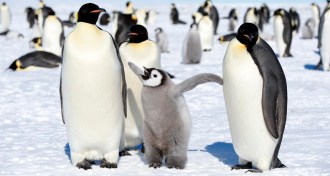 Animals
AnimalsOctomom and six other extreme animal parents
The octopus that brooded her young for 4.5 years is just the start when it comes to tales of extreme parenting.
-
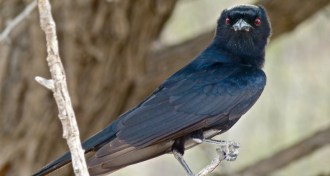 Animals
AnimalsDrongos deceive but weavers let them
The fork-tailed drongos of Africa manipulate others to get a meal, but there is good reason to let them get away with the deception.
-
 Oceans
OceansWhales and ships don’t mix well
A 15-year study of blue whales off California has found that major shipping lanes cut through feeding grounds.
-
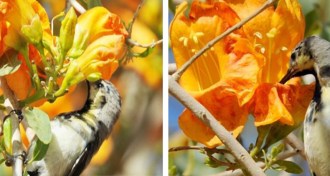 Plants
PlantsThese trees don’t mind getting robbed
Desert teak trees in India produce more fruit after they’ve been visited by nectar robbers.
-
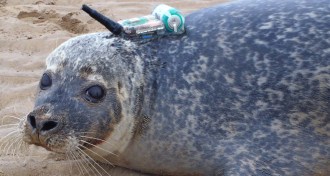 Ecosystems
EcosystemsOffshore wind farms may be seal feeding grounds
Harbor seals were tracked visiting offshore wind farms, probably to find food, researchers say.
-
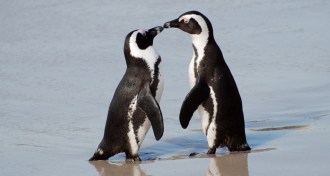 Life
LifeYou don’t have to go to Antarctica to see wild penguins
Tourists can visit many species of wild penguins outside of Antarctica.
-
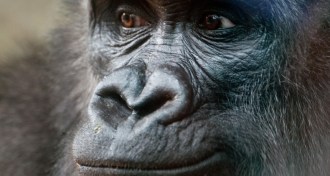 Animals
AnimalsThat stinky gorilla may be trying to say something
Scientists have found the first evidence of wild gorillas communicating by scent.
-
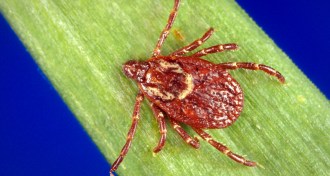 Health & Medicine
Health & MedicineYet another reason to hate ticks
Ticks are tiny disease-carrying parasites that should also be classified as venomous animals, a new study argues.
-
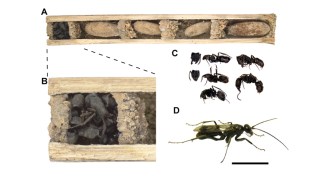 Animals
AnimalsDead-ant wall protects young spider wasps
Bone-house wasps probably use a barrier of deceased insects to guard against predators.
-
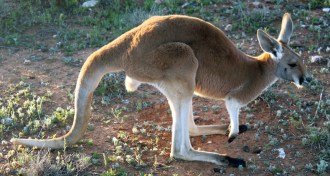 Animals
AnimalsRed kangaroo’s tail acts like a fifth leg
Red kangaroos wield their tails like another limb when moving slowly.
-
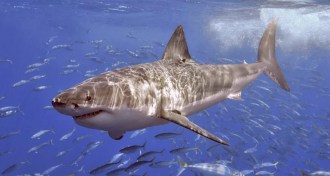 Animals
AnimalsWhy great white shark sightings are good news
Conservation measures implemented in the 1990s halted a decline in great white sharks in the Atlantic.
-
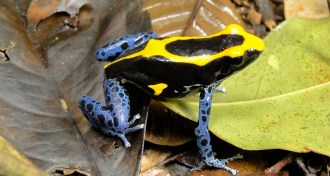 Animals
AnimalsTiny frogs host an illusion on their backs
How dyeing dart frogs move changes how predators see the amphibians, a new study finds.